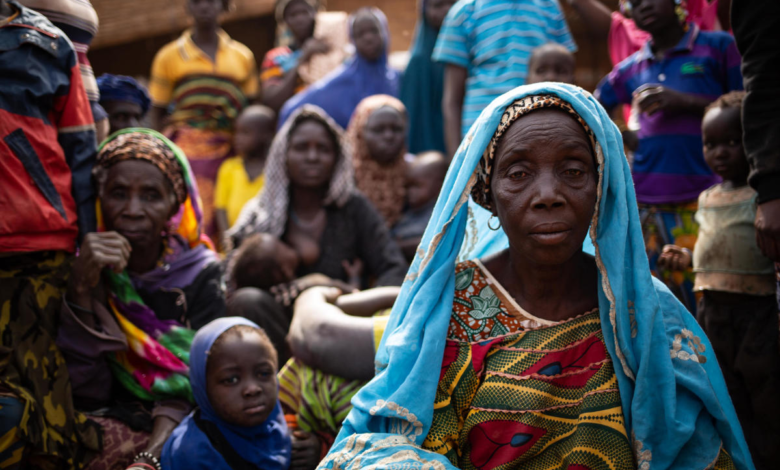Deepening Crisis In Burkina Faso Needs More Funds, International Refugee Organisations Warn
Almost two million people in Burkina Faso, or one in 10 of the population, have been pushed from their homes. The displacement crisis remains one of the three fastest growing in the world, but the international economic landscape underpinning aid is shifting

The crisis in Burkina Faso is getting worse, and humanitarian organisations are calling for more money and resources from international donors to cope.
The Norwegian Refugee Council (NRC), Save the Children International (SCI) amongst other international non-governmental organisations, have called for an urgent increase in funding from governments in donor countries, as nearly two million people in Burkina Faso have been displaced by the ongoing conflict.
More people were driven to flee their homes between Jan. and July 2022 than all of last year.
According to a press statement signed by 28 international aid organisations operating in the country, nearly one in 10 people are affected. The displacement crisis remains one of the three fastest growing in the world. This is happening amidst severe food insecurity as 600,000 people are facing extreme hunger during this lean season, nearly double the number last year.
The request comes at a difficult time for governments who set aside money in their budgets for international humanitarian aid programmes. The British government, facing the prospect of borrowing huge amounts of money to fund aid to its own citizens to get over rocketing energy prices, has already floated a cut to its aid budget.
The statement explained that despite immense challenges to providing shelter, water, healthcare and education, among other essential services, communities have rallied to support each other. But more humanitarian support from international donors is needed.
Hassane Hamadou, the Country Director of the NRC, said that “too often, displacement and hunger come as a one-two punch. People forced to move have left behind their fields and livestock.”
Hamadou explained that displaced families are being forced to eat one meal a day to allow children to eat twice, and recent waves of displacements should increase the urgency to act.
Children are the worst affected by the crisis. According to an Integrated Food Security Phase Classification (IPC) analysis, 699,027 children aged 6-59 months will likely be acutely malnourished through 2022 due to the ongoing conflict.
Benoit Delsarte, the Country Director of Save The Children (SCI), stated that children fleeing their homes due to conflict are traumatised, “but having to flee again and again while trying to survive robs families of any chance to rebuild their lives.” he explained.
Omer Kabore, Oxfam’s Country Director in Burkina Faso noted that communities are experiencing increased hardship during the lean season due to the food crisis from last year’s devastating farming season. “The effects of climate change, mass displacement and the rising global cost of grain products have combined into a perfect storm engulfing over 3.4 million Burkinabè,” he said.
The 28 signatory organisations revealed that eight months into the year, the humanitarian response is only reaching 36 per cent of the funding required despite soaring needs.
Support Our Journalism
There are millions of ordinary people affected by conflict in Africa whose stories are missing in the mainstream media. HumAngle is determined to tell those challenging and under-reported stories, hoping that the people impacted by these conflicts will find the safety and security they deserve.
To ensure that we continue to provide public service coverage, we have a small favour to ask you. We want you to be part of our journalistic endeavour by contributing a token to us.
Your donation will further promote a robust, free, and independent media.
Donate HereStay Closer To The Stories That Matter




